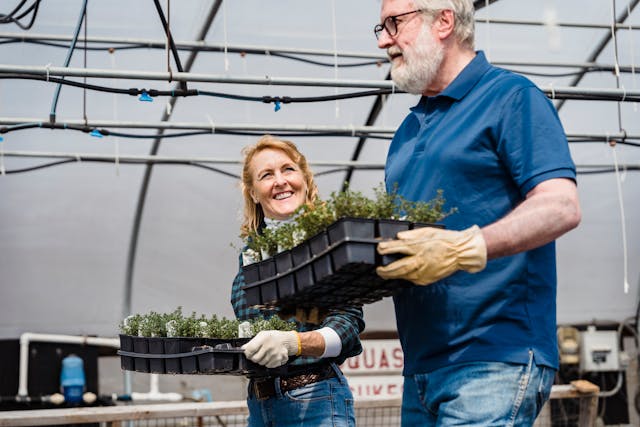In collaboration with various UK institutions and organisations, including research based in Sheffield, a new way of doing things has emerged in the UK. This effort aims to reshape perspectives on food and community collaboration. The launch of The Synergy Project Toolkit, led by Dr Clare Pettinger from the University of Plymouth’s FoodSEqual and Professor Charlotte Hardman from the University of Liverpool’s FIO Food and BeanMeals projects, marks a significant step towards fostering joint research efforts for transforming our food systems. I’d like to highlight how Sheffield’s pivotal role in spearheading innovative food initiatives across the UK has been part of this undertaking.
The urgency for a food system overhaul is undeniable. The current methods of food production, access, and consumption are exacting a toll on human health and the environment. Recognising this pressing need, there’s been a shift towards embracing creative and participatory research methods, such as co-production. Co-production emphasises collaboration, ensuring an equal partnership where diverse knowledge and expertise are exchanged for mutual benefit.
Within the landscape of academic research, co-production has emerged as a new alternative, offering pathways to empower underrepresented communities and enhance the relevance of research to real-world issues. It’s a collaborative endeavour that invites stakeholders from various sectors to co-design research processes and outcomes, ensuring inclusivity and applicability to the lives of real people.
The Synergy Project Toolkit is a testament to this ethos. As part of the UK Research and Innovation’s Transforming UK Food Systems Programme, the toolkit draws upon 11 case studies of co-production, meticulously crafted to highlight pathways towards food system transformation. Notably, Sheffield’s very own ShefFood initiative features prominently, symbolising the city’s pioneering efforts in driving meaningful change in the food system.
The first study, ‘Sharing good practice and learning through co-production with local food partnerships’, highlights Sheffield’s commitment to collaboration and knowledge exchange with other local food partnerships. ShefFood has become a hub of innovation by fostering partnerships and sharing best practices, inspiring similar initiatives across the UK. Much of this project involved a range of workshops that encouraged collaboration between diverse groups and conversations around how Sheffield folk actually engage in food in our city.
The second case study, “Co-creating a local food action plan with ShefFood,” highlights Sheffield’s proactive approach to addressing food-related challenges at the grassroots level. Through inclusive dialogue and participatory decision-making, ShefFood has cultivated a sense of ownership and agency among community members, paving the way for sustainable food solutions tailored to Sheffield’s unique needs. The culmination of this work was the launch of Sheffield’s Local Food Action Plan in June 2023.
The Toolkit encapsulates a rich tapestry of other collaborative efforts across various fronts from around the UK. From co-designing a bean-themed game with school children to fostering partnerships with community organisations for regenerative agriculture trials, each case study exemplifies the power of collective action and alternative solutions in reshaping our food systems.
Through these diverse endeavours, the toolkit offers a comprehensive roadmap for researchers, institutions, and policymakers to navigate the complexities of food system transformation, paving the way for a more equitable and sustainable future.
In Sheffield, like many urban centres, the food system faces a myriad of challenges, each with its own unique impact on the community. One pressing issue is the lack of horticultural training and resources, which hampers efforts to cultivate local, sustainable food sources. Coupled with this challenge is the stark reality of high levels of poverty and obesity, exacerbating health disparities within the city. Moreover, reduced funding for essential services further strains efforts to address these issues effectively.
Adding to the complexity, big business food companies dominate advertising channels, promoting unhealthy options while overshadowing local, healthier alternatives. This creates a formidable barrier to promoting nutritious food choices and supporting local food enterprises. Furthermore, Sheffield’s food businesses grapple with the same economic challenges the rest of the UK faces, making it difficult to navigate the competitive landscape while striving to maintain ethical and sustainable practices.
These multifaceted challenges underscore the urgent need for collaborative initiatives, such as ShefFood, and innovative approaches, like those highlighted in The Synergy Project Toolkit, to forge a more resilient and equitable food system for Sheffield and beyond.
What sets Sheffield apart is not just its commitment to food action but its ethos of inclusivity and collaboration. ShefFood’s presence within The Synergy Project Toolkit exemplifies the city’s dedication to driving positive change focused on the many, not the few. By leveraging the power of co-production, Sheffield is not only shaping its own food landscape but also inspiring communities far beyond its borders.
Sheffield is an inspiring example of what’s possible when communities unite towards a common goal in the food system. The Synergy Project Toolkit offers valuable guidance for cities in the UK and worldwide, paving the way for a sustainable future. In Sheffield, the journey towards food system transformation is not just a collective endeavour; it’s about the power of community and collaboration.
—
You can learn more about the toolkit at: plymouth.ac.uk/research/synergy ShefFood is the food partnership for Sheffield. They are a cross-sector partnership of organisations committed to creating a more sustainable food system for Sheffield. For more information or to get involved, please contact ShefFood’s Partnership Coordination Team at info@sheffood.org.uk or visit sheffood.org.uk

